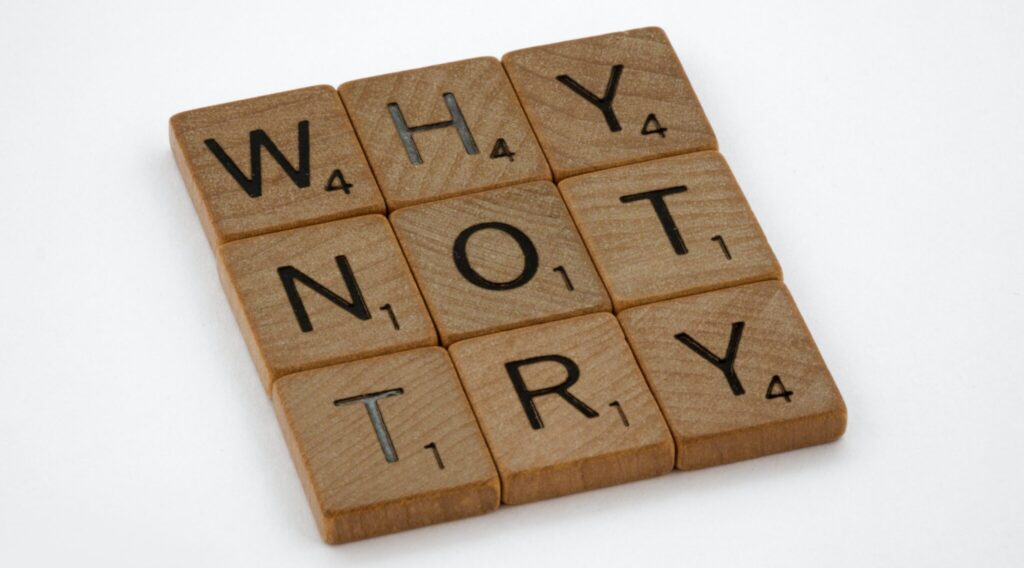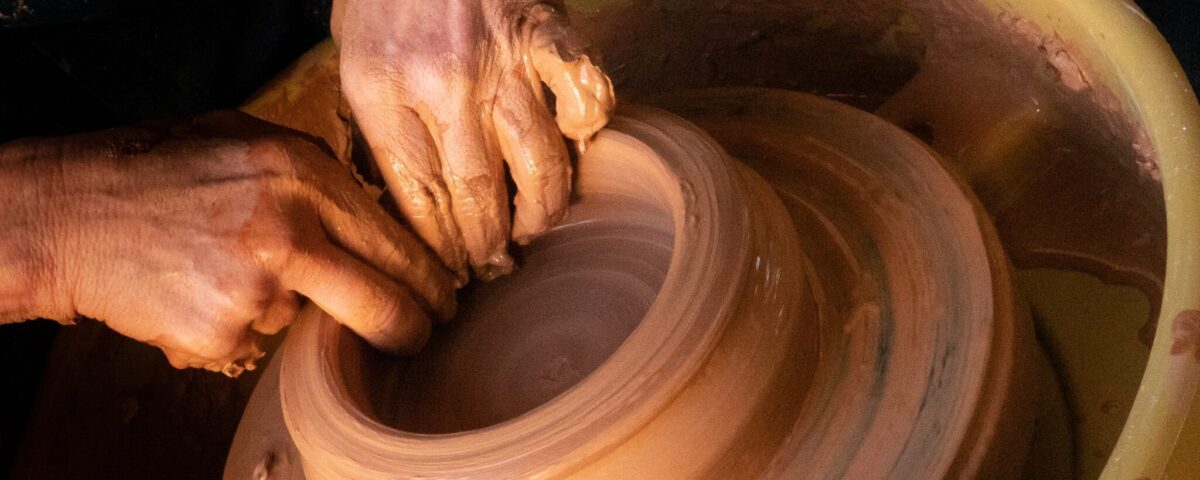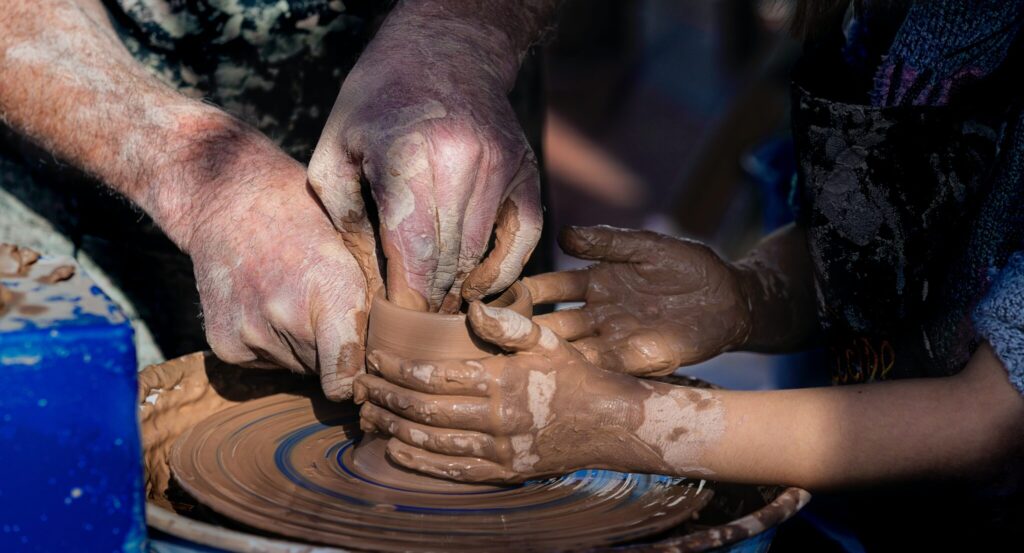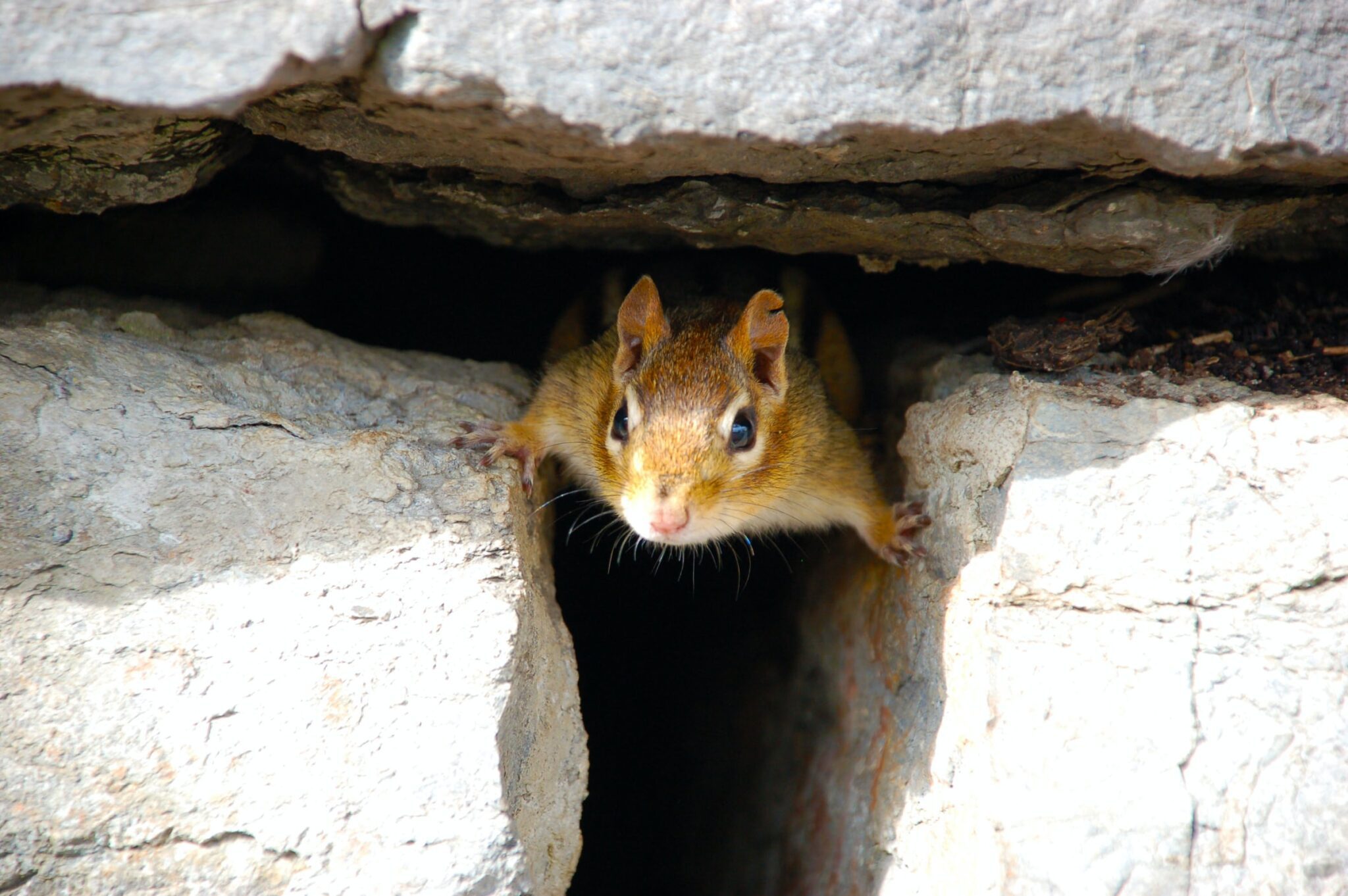
How to Calm Your Fight-Flight-Freeze Response
June 9, 2021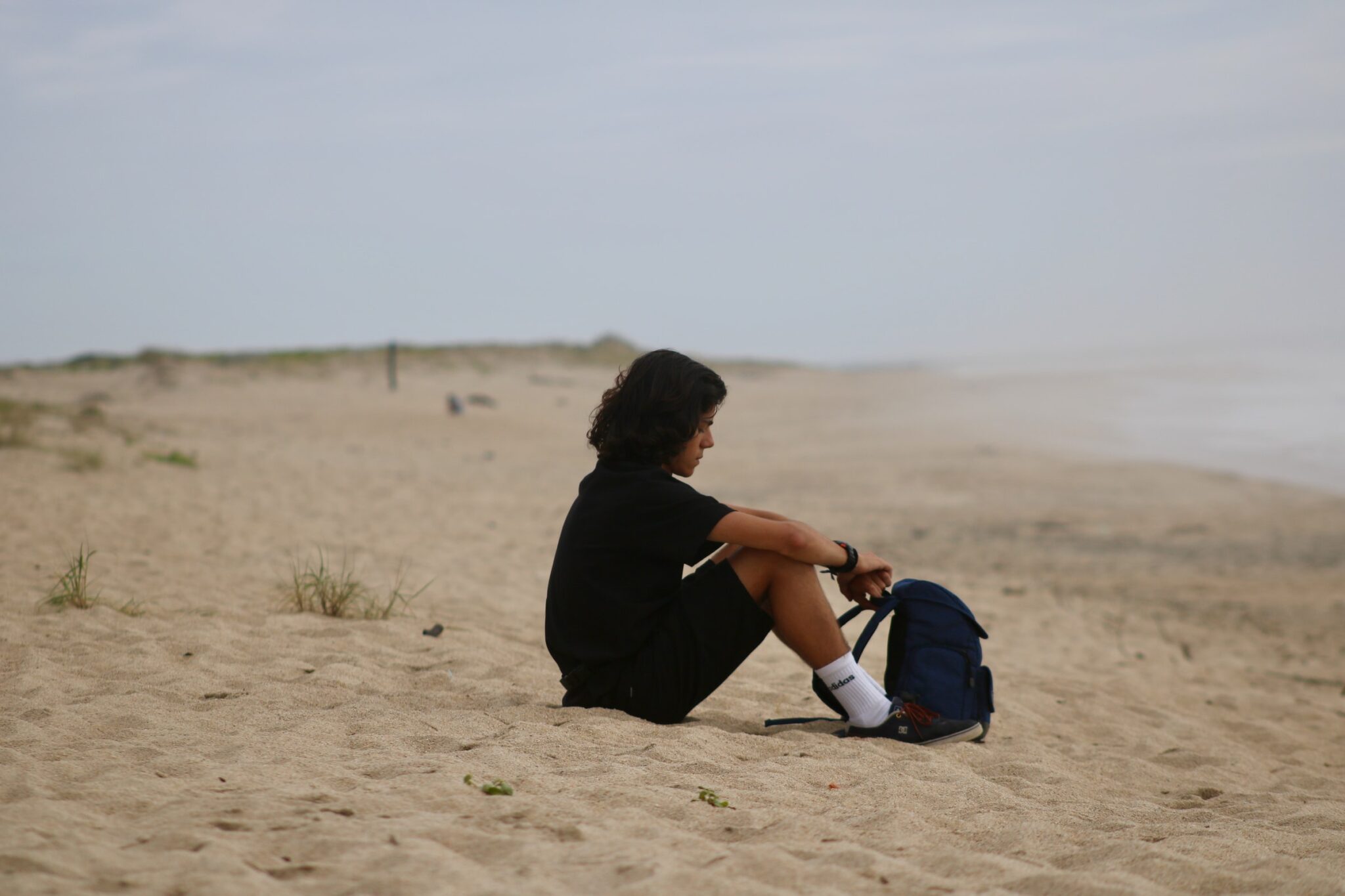
Walking on Shifting Sands: The Wearying Journey
August 11, 2021Try.
Maybe you have seen other people do something and you wondered: How hard is it? Or an opportunity pops up: “Could you please speak about your experience at our gathering?” “Would you like to try the paddle board?” “We need someone to organize this project.” How do you tend to respond?
- Uh, no. It does seem interesting, but I am pretty sure I can’t do that.
- Sure, I’ll try.
I am often found behind door number two. In the past, my stress levels would be super high. I worried about how others were perceiving me. Faking a level of confidence that didn’t exist, I forged ahead. Secretly I researched how to do it rather than asking for help. People’s possible judgment haunted me. I was sure that they were thinking that I was messing up to the point of ridiculousness.
But then I considered how I feel when I see someone trying something new.
I feel delight. I am impressed. I rejoice in another’s ability to try.
I enjoy helping someone learn a new task. I love being part of the try. The new. The courage that is doing something that might not work out. Watching someone’s skill and confidence grow is fun. Even when it doesn’t come together one hundred percent, learning occurs. Perfection isn’t the goal. Getting something done, having fun, giving it a try matters.
Why did I hide that I was trying? I lost sight of the fact that everybody does everything for the first time. Where did this fear come from? My imposter syndrome had a role in this, I felt like I had to be perfect to be okay. And doing something new, trying, generally involves not doing it well. Mistakes will be made, and a certain amount of ridiculousness may ensue.
Openly trying includes stating, “I’ll try. I need help. This is new. Do you have any pointers?”
Trying something new without faking is exciting. It is also nerve wracking. I am much kinder to myself. Messing up no longer means failure. Instead, I say, “Hey, I am trying!” Over time the wobbling and falling decreases. I try myself right into doing. Hurray! Asking for help along the way increases my learning; and increases the number of new things I get a chance to try.
What new opportunities are being presented to you? Are you able to try? Who do you need to ask for help? And rather than beat yourself up remember that a lot of people are quietly cheering for you. They delight in your courage because it is sunshine to their courage.
To learn more, explore learnmodelteach.com for tools, videos, and coaching opportunities.
Peace,
Laura A. Gaines
